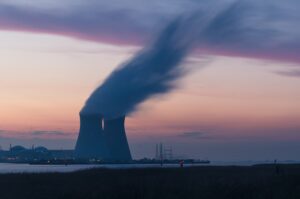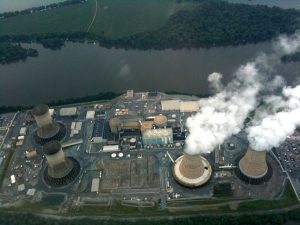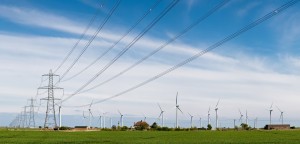8 item(s) were returned.
Director of Global Nuclear Energy Strategy
Clean Air Task Force
Once again, the Atlantic hurricane season has demonstrated the impacts of climate change. Hurricane Ian made landfall in Florida as a category 4 storm in late September. It rapidly intensified to a “500-year flood event,” per Florida Governor Ron DeSantis, leveling communities, leaving millions without power, killing an untold number of people, and likely leaving behind billions of dollars in property damage. This follows a year of droughts, wildfires, and unrelenting heat. Clearly, the climate crisis is here. But we have answers to that crisis if we are willing to use them. Governments at all levels are already working towards… [more]
View InsightManaging Attorney
Noyes Law Corporation
In October, the International Energy Agency (IEA) reaffirmed the leading role that bioenergy continues to play in decarbonization. IEA Executive Director, Dr. Fatih Barol, pointedly stated, “Modern bioenergy is the overlooked giant of the renewable energy field… We expect modern bioenergy will continue to lead the field, and has huge prospects for further growth. But the right policies and rigorous sustainability regulations will be essential to meet its full potential.” The IEA concludes that to meet long-term climate goals, renewable energy development in the heat, electricity, and transport sectors must accelerate. Transportation has clearly emerged as the most difficult sector… [more]
View InsightPresident
Reishus Consulting, LLC
With American federal climate policy in retreat after President Trump announced his intention for the US to withdraw from the Paris Accords, where will climate change activists focus their efforts? While recent announcements coming from local politicians indicate that cities from Portland to Pittsburgh, plus many states, are intent on moving forward with strategies to decarbonize, corporations form a key sector whose willingness to embrace strategies to avoid corporate climate risk matters greatly. Do shareholder activists play a critical role in forcing large businesses, especially those firms holding fossil fuel assets, to acknowledge risks and adopt strategies that directly address… [more]
View InsightPresident
Kadak Associates, Inc.
If climate change is considered a real concern by most government officials, why are policymakers and politicians not acting to keep reliably operational nuclear plants from being prematurely shutdown? As most know, nuclear-generating plants, such as Three-mile Island in Pennsylvania, produce essentially zero carbon dioxide and other climate-altering gases. Once the United States had 104 operating nuclear plants producing over 60% of the nation’s clean energy. Today that number is down to 99. Nuclear plants used to generate about 20% of the electricity consumed. Today it is about 17% and declining. The most recently announced shutdown was the Three Mile… [more]
View InsightSolutions Fellow
Center for Climate and Energy Solutions
California has demonstrated leadership in setting ambitious goals for reducing greenhouse gas emissions by setting a target to reduce emissions to 40 percent below 1990 levels by 2030. While California is reducing emissions and expanding clean energy through many means, including a cap-and-trade program, the state appears to be underestimating the effectiveness and readiness of carbon capture technology and how it could help California reach its goal. In consensus comments on the California Air Resources Board’s (CARB) draft 2017 Climate Change Scoping Plan Update, a diverse group of nonprofits (including C2ES); environmental groups; and oil, gas, and ethanol companies outlined… [more]
View InsightConsultant
Future Fuel Strategies
Citizens and policymakers in many countries have never been more committed to combating climate change across all sectors. One high-emitting sector that is often overlooked, when compared to industry and manufacturing, is transportation. Transport currently contributes 23% of energy-related greenhouse gas emissions and 20% of energy use. Globally, the sector is expected to double by 2030, according to IEA. Decarbonizing transport is a major challenge with some strong and powerful advocates calling for a single one-shot solution (electrification). However, achieving decarbonization in the transport sector will require multiple strategies that understand fossil fuel demand will remain in place for some… [more]
View InsightThe International Civil Aviation Organization (ICAO) finalized an agreement to cap the aviation industry’s CO2 emissions at 2020 levels. Due to the cross-border nature of aviation, this sector, which is responsible for 2 percent of all GHG emissions globally, was excluded from the Paris Agreement in 2015. Although the agreement’s mandatory phase begins in 2027, more than 60 countries will voluntarily participate in the Carbon Offsetting and Reduction Scheme for International Aviation (CORSIA) beginning in 2021. CORSIA is a market-based measure capping emissions at 2020 levels. Airlines that exceed the emissions cap can offset their excess CO2 in two ways.… [more]
View InsightAssistant Professor, Energy and Resources Group
University of California, Berkeley
Wind and solar capacity have grown significantly in the last decade, and many believe that significant reductions in carbon emissions require continued expansion of their capacity (see for example recent papers by Jim Williams et al and Jimmy Nelson et al[1]). With the declining cost of wind and solar, the economic case for increasing production from sources whose fuel is free is getting better. But getting these energy sources on to the grid is not without its engineering and economic challenges. Wind and solar production is both variable and uncertain, and grid system operators need to make sure they have… [more]
View Insight






